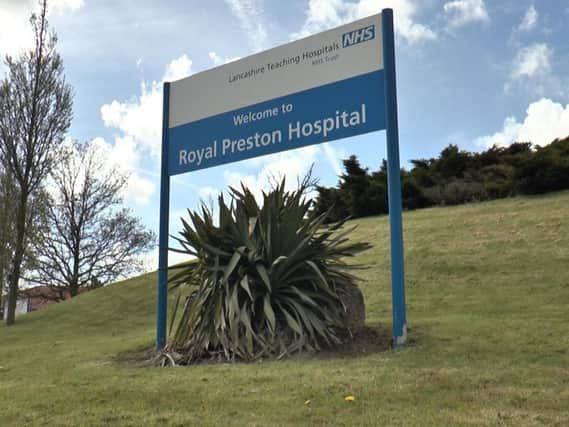Preston and Chorley Hospitals' recovery not yet complete


A board meeting of Lancashire Teaching Hospitals NHS Foundation Trust heard that although there had been advances which “cannot be disputed”, it was unlikely to be enough to be lifted into the next category of ‘good’.
Inspectors from the Care Quality Commission (CQC) returned to the Royal Preston and Chorley and South Ribble Hospitals last month and are now producing a report which will be the basis for its new rating.
Advertisement
Hide AdAdvertisement
Hide AdThe trust was ordered to improve in April 2017, following its last full inspection.
Christine Morris, Interim Divisional Director of Governance, told board members: “We can’t expect the CQC result will [be] anything other than ‘requires improvement’.”
“We have delivered improvements which cannot be disputed...but it all depends on the issues [where] we have not got over the line,” she added.
Those issues include staffing and training, which remain the chief areas of concern for the regulator.
Advertisement
Hide AdAdvertisement
Hide AdBoard papers reveal the trust has fallen short of targets relating to staff-to-patient ratios for those in need of high dependency care and national guidelines for the staffing of children’s services.
Recruitment is underway to tackle both problems and Gail Naylor, the trust’s Director of Nursing and Midwifery, told members she hoped “the CQC narrative reflects the verbal feedback [given] about the improvement made”.
But non-executive director Professor Tony Garell warned: “The narrative is one thing, but the only thing Joe Public sees is ‘requires improvement’.”
Meanwhile, the board heard the trust could consider pegging staff pay increases to the completion of compulsory training. Currently, 83 percent of required training is up-to-date - but not “at desired levels”, according to a report presented to the meeting.
Advertisement
Hide AdAdvertisement
Hide Ad“Lots of work has been done on reminders that go to staff about training,” Karen Swindley, the trust’s Associate HR Director, told board members. “It is really clear about what people are expected to do.”
“The [national] pay deal allows local criteria to be added to pay progression - and we could add training,” Ms. Swindley said.
Figures show that there have been significant improvements in training to ensure the safeguarding of children - 90 percent of staff have now completed so-called ‘level 2’ training, compared to just 30 percent in April 2017.
Elsewhere, all specified measures relating to harm-free care have been implemented and are still showing as ‘green’ on the trust’s own assessment of its performance - as are 78 percent of the targets created in response to the CQC’s last report.
Advertisement
Hide AdAdvertisement
Hide AdBut some of the regulators concerns from its last inspection have not been fully resolved. They include the number of times a patient is moved unnecessarily during their stay and the privacy of patients when they are waiting to be discharged.
Trust chairman, Sue Musson, told fellow board members: “We are not where we need to be, but it shows the distance travelled. It shows we have an effective improvement plan."
The CQC is expected to finalise its latest report next month, but no date has been given for when its findings will be made public.